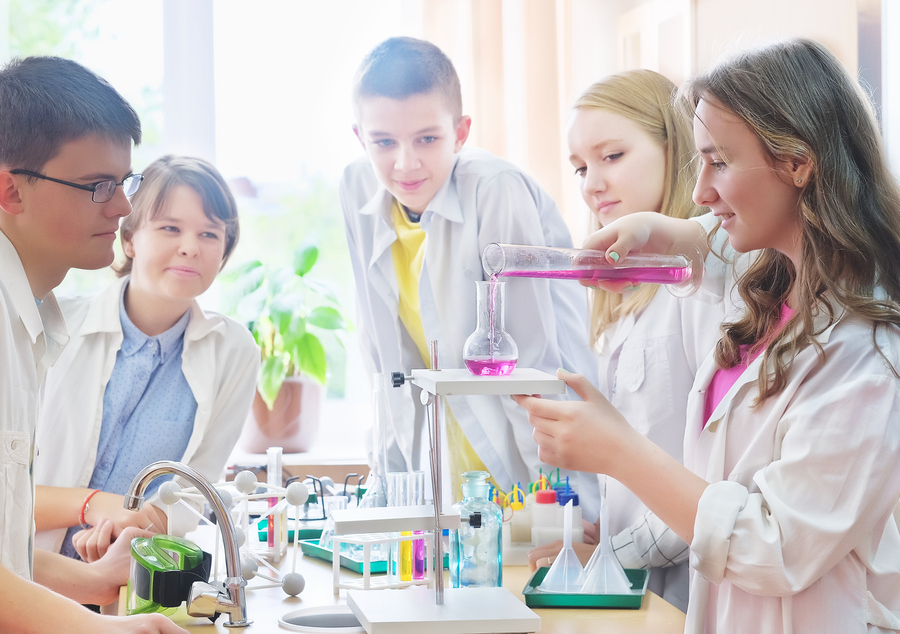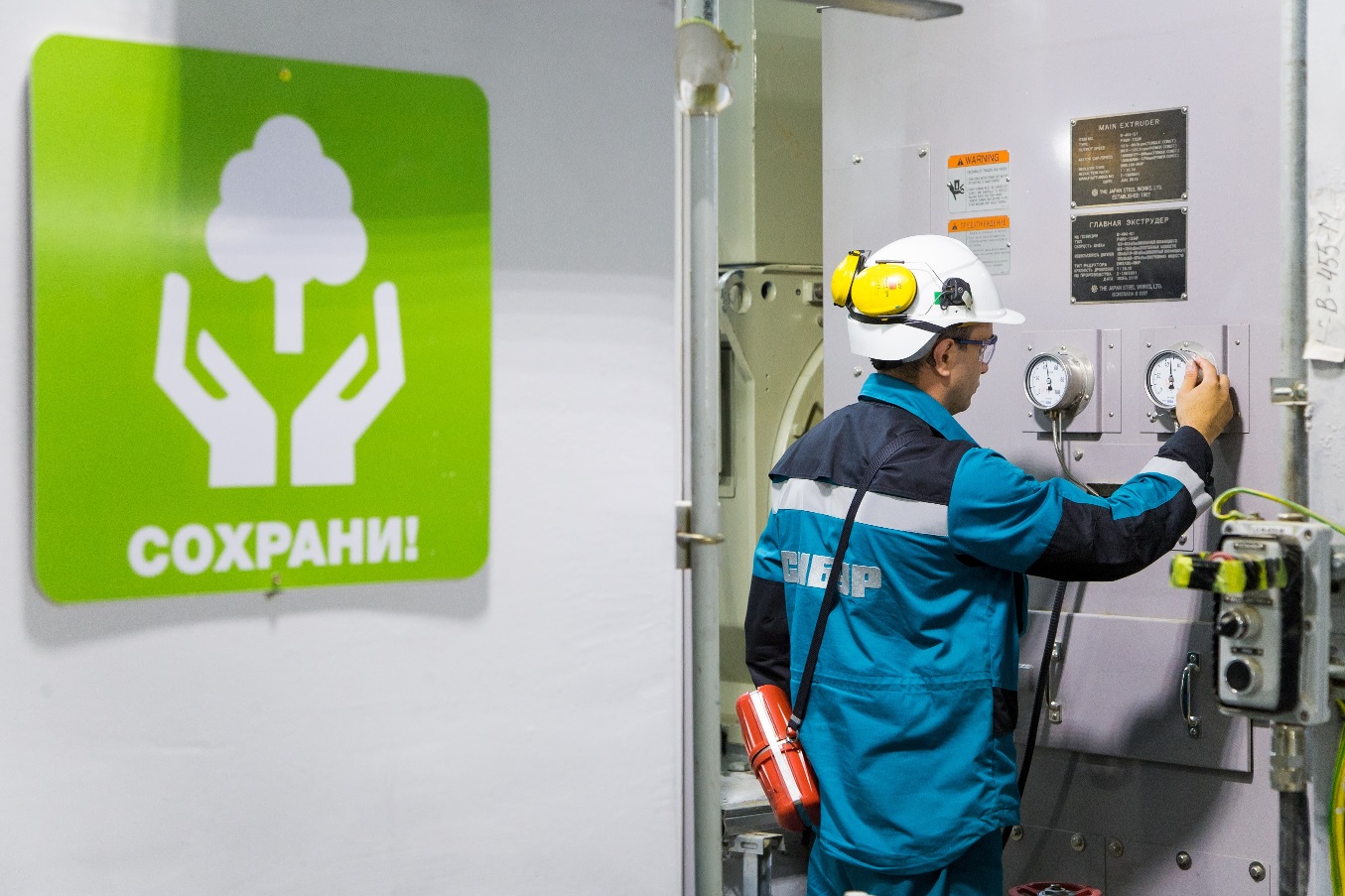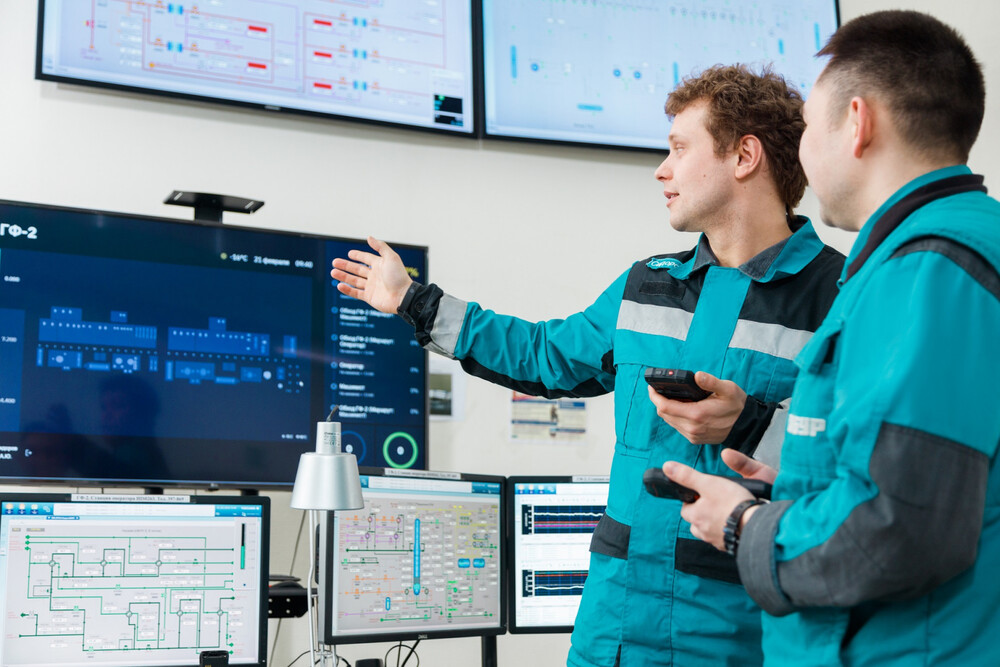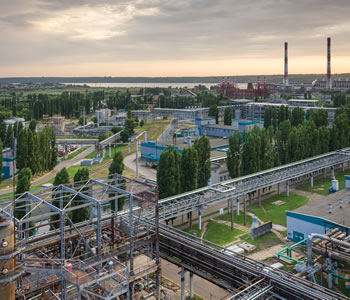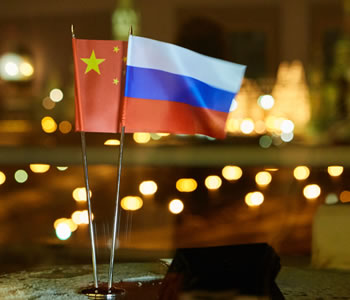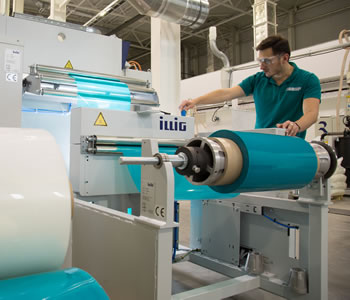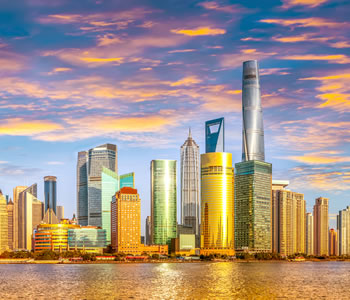The Russian Chemists Union (RCU) is Russia’s largest association of chemical and petrochemical companies. Maria Ivanova, First Vice-President of the RCU, sat down with SIBUR to talk about her organisation’s involvement with the industry in Russia and abroad, work on legislation, building the circular economy and rolling out a sustainable development strategy.
– What is the Russian Chemists Union like today? How does it stand in industry?
– The Russian Union of Chemists was established in 1997 as an expert industry association of enterprises fr om the real sector of the economy, science, and educational organisations, to build a clear and balanced dialogue with the authorities on today’s key issues. Over time, the Union has become a real centre of excellence, able to solve problems that go far beyond the local industry tasks of today. The main governing body of the RCU today is the Board, which includes recognised industry experts from almost all sub-sectors of the chemical industry, representatives of science and top management of major industry players. Positions on the Board are elected and require each candidate to be supported by the professional community. The experts on the RCU Board help to shape the industry agenda and solve problems related to production, raw materials, science, the industry talent pipeline, the development and transfer of technologies and successful practices in a number of areas, all while discussing draft laws that affect the interests of the chemical industry. The RCU Board also takes conceptually important decisions on the evolution of industry and chemistry, the key economic engines of Russia, which are then communicated to the government.
The Russian Chemists Union has become a real centre of excellence, able to solve problems that go far beyond the local industry tasks of today
Many Russian companies (in particular SIBUR, PhosAgro, Acron, Shchekinoazot, TOAZ and BSC) are already building up vocational training in their regions of operation, setting up specialised classes in advanced chemistry at schools, special educational centres for graduates of specialised universities, and even intense creative chemistry courses at special preschools.
Spreading awareness and combatting “chemophobia” are also part of the RCU’s day-to-day work. By this, I mean holding mass sporting events, publishing books and launching reference projects and the achievements of chemical science, making documentaries and training videos breaking down chemical technologies, and having Union experts appear on TV and in public projects to explain the development strategy of the chemical industry.
We believe that it is vital to communicate a competent position on modern chemical production that is rooted in science, and not to allow public opinion to be manipulated. The RCU’s constituent companies are given a strong voice in federal and regional media, as well as in industry publications.
The Russian Chemists Union is made up of about 600 enterprises, which account for about 70% of all domestically-produced chemical products.
One of the core areas of the RCU’s work is interfacing with government agencies and relevant ministries on the development of roadmaps, technical regulations and state support measures.
The Union’s experts take part in industry working groups with the Russian Ministry of Energy, the Ministry of Industry and Trade, the Ministry of Labour and Social Protection, the Ministry of Science and Higher Education, and contribute to the activities of the Russian Trilateral Commission on the Regulation of Labour Relations.
One of Russian Chemists Union’s goals is to create a tiered system of training for specialists, from schoolroom to production line.
Areas of work and cooperation
– How does the RCU contribute to the activities of international industry organisations?
– One of the key areas of the Union’s work is interacting with the international professional community, in particular with the International Council of Chemical Associations (ICCA) and the European Chemical Industry Council (Cefic). The European Chemical Industry Council holds important expertise and in 2019 highly appreciated the contribution of Russia and the Russian Chemists Union to creating a sustainability performance assessment methodology for enterprises in the chemical industry. At the 2019 European Responsible Care Awards, RCU received a special mention for its dedication to enhancing Responsible Care.
Looking ahead, we face a formidable task in creating a tiered system of training for specialists, from schoolroom to production line
Our work with the International Council of Chemical Associations is important for building cooperation and exchanging views on the key issues facing the evolution of chemistry and its most important sub-sectors. I’ll tell you this: sustainable development is one of the most important topics of discussion with them.
Also, both the Union and its constituent companies enthusiastically participate in global scientific communication events, technology sessions, as well as open forums on the development of common environmental and sustainable development solutions.
– What is the RCU’s main focus area today?
– If we are talking about priorities, it is important to highlight our work removing barriers to the development of the Russian chemical industry, supporting industrial applied science, and training personnel for high-tech, promising industries, as well as developing clusters and technology parks, getting the state on board with the creation of joint ventures.
The RCU supports scientific activities as an essential component in the development of the chemical industry.
The RCU and its constituent companies enthusiastically participate in global scientific communication events, technology sessions, as well as open forums on the development of common environmental and sustainable development solutions
The circular economy: synergistic action
– The RCU works with the authorities to contribute to the development and adoption of legislation and standards. What have you done in this area to foster the circular economy?
– As of late, a considerable amount of work has been dedicated to developing Best Available Technology (BAT) reference documents for a number of industries, which will be, in many respects, a foothold for the introduction of truly eco-friendly solutions in the industry. To facilitate regular interaction between the government and Russian business on the sustainability agenda, the Ministry of Economic Development now has an expert council on sustainable development, which receives input from major chemical companies from the Russian Chemists Union. The Ministry has planned to work with representatives of these companies on social and environmental aspects of doing business, and seek the private sector’s input on achieving the UN Sustainable Development Goals. On top of this, the members of the council are expected to help adapt Russian companies to new, international sustainability trends and regulation.
There are already a number of companies in Russia (PhosAgro, EuroChem, Aсron, KuibyshevAzot, Shchekinoazot, Pigment, etc.) that are evolving their businesses to take into account product life cycle, the impact of operations on the environment, their carbon footprint, and the principles of lean manufacturing. SIBUR is doing fantastic work in this regard, clearly leading the charge by rolling out its sustainable development strategy, which the entire industry looks up to.
As for its legislative work, the RCU upholds well-considered and balanced decisions; still, we always come down quite heavily on any radical prohibitive initiatives. An example of this would be the State Duma’s activities in relation to certain types of polymer products, which, in our opinion, do not solve problems, but only serve to aggravate them. We also believe that the issues facing the implementation and development of the principles and culture of consumption lie in creating materials with specified properties and life cycle, as well as the introduction of highly affordable and bio-inspired technologies.
We stand for the conscious consumption of resources and involving recycled materials into production across manufacturing companies’ product portfolios.
Environmental management is being fostered at SIBUR’s Tomskneftekhim facility.
– Could you mention any eye-catching practices in this area?
– If we are talking globally, it seems to me that we should look towards the Alliance to End Plastic Waste (AEPW), which includes 30 of the world’s largest manufacturers of plastics and consumer goods. The organisation already has commitments of over USD 1 billion, with USD 1.5 billion more set to be invested over the next five years. These funds will be used to remove plastic waste from the environment, in particular to clean up the world’s ten major rivers, including the Amur River. In addition, AEPW plans to introduce new plastic reuse solutions.
Today, the cost of product and packaging disposal must be calculated at the design stage. I am pleased to see that most manufacturers are gradually beginning to adopt this conscious approach to the products they create. After all, it’s the future
A new example of the circular economy can also be seen in Russia. A project to recycle tyres into high-quality recycled pellets was launched in Tatarstan recently. Size-wise, tyres are one of the largest forms of polymer waste: a single tonne of tyres contains about 700 kg of rubber, 200 kg of metal and 100 kg of cord. This can all be re-used in the production of rubber products, wear-resistant coatings, parts of playgrounds and road tiles. Recycled raw material processors are also struggling to obtain high-quality recycled pellets of all types of polymers, ready for the repeated return to the production cycle.
Waste management: barriers and solutions
– One of the RCU’s 2025 goals is to work with professional market participants and the authorities to help achieve Russia’s waste management goals. How exactly does the Union plan to do this?
– The Russian Union of Chemists helped to develop the state Strategy for Development of the Chemical and Petrochemical Complex in the Period up to 2030, which sets out roadmaps for the development of all segments of the chemical industry. The document’s aim was not just to integrate all cutting-edge solutions from global industry into Russia, but also to tap the potential of Russian applied science. One of the Strategy’s key objectives was to build up infrastructure and transparent financial instruments to increase the number of conversion stages for raw materials processed and to develop the finished consumer goods production sector, something that will greatly contribute to job creation and Russia’s lower reliance on imports. The Strategy pays great attention to emissions and the processing of waste. There is a vast range of different solutions in Russia, ranging from direct mechanical recycling to chemical recycling, which takes the product back to its original molecule.
Training also plays a major role in the Strategy, as companies in the chemical industry are facing an acute shortage of skilled workforce. These efforts include the rollout of the National Qualifications System, development of professional standards, and independent assessments of qualifications. That is precisely the reason why leading industry companies are taking major steps with specialised universities to organise educational programmes at various levels: Bachelor’s, Master’s, additional specialised training, and networked training for specialists in the field.
– What is the waste disposal situation in Russia right now?
– The Russian waste management industry has recently been singled out, and there are still a good number of tasks ahead of us to regulate activities, taking into account the views of all major stakeholders. The lack of a well-established method of financing and subsidising recycling projects is the first obstacle in the road to developing the industry. This is a tricky process that requires the input of the state and the private sector. The difficulties associated with organising separate waste collection are the second obstacle, and the responsibility for doing this lies with each and every one of us. Compared to other countries, Russia is simply too vast, so building out logistics and infrastructure entails much more time, resources and money than anywhere else. Life doesn’t stand still, and although implementing waste reform may be struggling to get off the ground, we can already see some early successes. Still, we need to keep up the pace to improve our work with regional operators on how municipal solid waste (MSW) is handled, and to introduce and develop accounting systems for recycled resources. In my opinion, it is very important to develop and maintain recycled resource platforms like SIBUR’s Re.actor.
We believe that it is vital to communicate a competent position on modern chemical production that is rooted in science, and not to allow public opinion to be manipulated
The third roadblock to developing the recycling industry is the existing regulatory framework. It is simply not fit for the widespread rollout of recycled pellets. RCU specialists are working on proposals to change regulatory standards and norms.
The availability of economically sound technologies is not just a Russian problem, it is seen around the world. Creating a high-quality final pellet with excellent properties and characteristics does not only bring high costs, but also sustainable system-wide solutions. In this regard, we need to change attitudes towards product turnover. Today, the cost of product and packaging disposal must be calculated at the design stage. I am pleased to see that most manufacturers are gradually beginning to adopt this conscious approach to the products they create. After all, it’s the future.
Of course, Russia is a laggard in collecting and sorting waste; so, as is usually the case here, we need to fulfil a five-year plan in just three years. Still, I am convinced that we can rise to the challenge.
– When the most pressing problems in waste collection are solved, wh ere will efforts be shifted to?
– The industry understands that landfill must be avoided as far as possible; but, unfortunately, it is not yet possible to recycle waste completely. For this reason, we need a combination of different disposal mechanisms, recycling some waste and burning some to generate secondary energy. Even today, there are already some very interesting cases of valuable components being extracted from disposable and rechargeable batteries, as well as plastic and biowaste being processed by microorganisms. Of course, Russia still has a long way to go, but this area has huge potential.
A solid partnership
– How do the RCU and SIBUR work together, and what are the benefits for the two sides?
– SIBUR and the RCU have a long history. SIBUR was one of the Union’s founding members and has been involved in a lot of our work since then. Two further founding companies have since been acquired by SIBUR. Vladimir Razumov, Deputy Chairman of the Management Board at SIBUR, is one of our Vice-Presidents. He is one of the Union’s most influential experts in investment policy. SIBUR is the main partner of all international RCU projects, especially when working with Cefic.
The RCU keeps up with SIBUR’s digital innovations.
The industry understands that landfill must be avoided as far as possible; but, unfortunately, it is not yet possible to recycle waste completely. For this reason, we need a combination of different disposal mechanisms, recycling some waste and burning some to generate secondary energy
All of our expert panels feature colleagues from SIBUR. We are currently working together on a regulatory guillotine, which will cut red tape at enterprises. This is an ambitious state project that wouldn’t be possible without the backing of a domestic petrochemical leader. The support of SIBUR’s experts when developing regulations on the logistics of chemical products and professional standards is also invaluable.
The RCU Digitalisation Commission constantly draws on SIBUR’s experience and innovations that have been successfully implemented at its sites.
SIBUR places a great importance on practical applications of applied science, putting scientific developments to work and introducing new educational technologies; therefore, it sets universities very specific and clear tasks. SIBUR also boasts a range of staff training initiatives; for example, the RCU and SIBUR held a strategic session on the development of a competency tree for petrochemical workers in 2019. This was an exemplary case, which not only set a high bar for workers’ skills mix, but also set the standard for how these assessments should be run.
– How do you see the future of recycled polymers in Russia?
– I believe that we currently live in the age of the polymer industry. Polymers are unique materials that can not only make our lives safer and more comfortable (in many ways, COVID proved this), but also give a telling demonstration of the scope of breathing new life into used materials. Exactly how we work with recycled polymer materials will have serious consequences for the success of the approaches taken to develop the circular economy in Russia.
Download PDF


